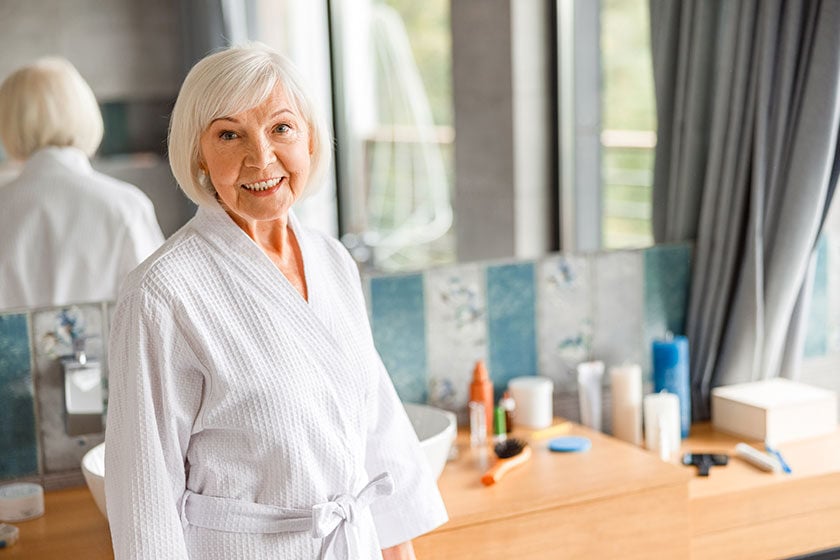Deciding How Often Your Loved One Should Shower

Caring for an elderly loved one involves attending to their daily needs, and showering is an essential part of personal hygiene. However, determining the appropriate frequency can be challenging. Factors such as age, health conditions, mobility, and personal preferences all play a role. Understanding these factors can help you make the best decision for your loved one's well-being and comfort.
Assessing Mobility and Independence
The ability to move independently greatly influences how often an elderly person should shower. For those with limited mobility, daily showers may not be feasible or necessary. In such cases, alternative bathing methods like sponge baths or assisted showers can suffice. Consider installing grab bars and non-slip mats in the bathroom to enhance safety during bathing.
Considering Skin Health
The aging process affects the skin's elasticity and moisture levels, making it more susceptible to dryness and irritation. Frequent bathing with harsh soaps can exacerbate these issues, leading to discomfort and skin problems. Opting for lukewarm showers instead of hot ones and using mild, moisturizing cleansers can help maintain skin health. Aim for a balance between cleanliness and skin care to prevent dryness and irritation. Protecting one’s hair health by using gentle shampoo when washing hair is also something to take note of.
Factoring in Health Conditions
Certain medical conditions may necessitate more frequent bathing to manage symptoms and prevent infections. For example, individuals with incontinence or urinary tract infections may benefit from daily showers to maintain cleanliness and reduce the risk of skin irritation. Consult with your loved one's healthcare provider to determine the appropriate bathing frequency based on their specific health needs.
Considering Personal Preferences
Ultimately, the frequency of showers should align with your loved one's preferences and comfort level. Some individuals may feel invigorated by daily showers, while others may prefer less frequent bathing. Respect their autonomy and involve them in the decision-making process to ensure their preferences are prioritized.
Establishing a Routine
Consistency is key when it comes to personal hygiene routines for the elderly. Establishing a regular bathing schedule can provide structure and predictability, promoting feelings of security and well-being. Take into account other daily activities and appointments when scheduling showers to minimize disruptions and ensure a smooth routine.
Environmental Considerations
The environment in which your loved one lives can also impact their showering frequency. For instance, individuals residing in hot and humid climates may require more frequent showers to stay fresh and comfortable, whereas those in cooler climates may be able to space out their bathing sessions. Additionally, factors like access to clean water and reliable heating systems should be taken into account to ensure optimal hygiene practices.
Monitoring Hydration Levels
Proper hydration is essential for maintaining overall health, including skin hydration. Encourage your loved one to drink an adequate amount of water throughout the day, as this can help keep their skin moisturized and reduce the need for frequent showers. But remember to be mindful of overhydration, especially if your loved one has certain medical conditions that require fluid restriction. Monitoring hydration levels can help strike the right balance between staying hydrated and avoiding excessive bathing.
Finding the Right Balance: Establishing a Personalized Bathing Routine for Your Elderly Loved One
There is no universal answer to how often elderly individuals should shower, as it depends on a variety of factors like mobility, skin health, medical conditions, and personal preferences. If your loved one is staying at a senior care facility, it’s important to collaborate with the care team to develop a bathing routine that suits their needs.
At our retirement community, we work closely with residents and their healthcare providers to create a bathing routine that ensures cleanliness, comfort, and overall well-being.
Feel free to reach out to us to learn more about how we can support your loved one's daily care needs.
